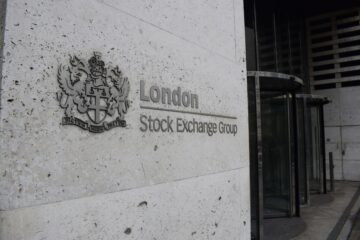Introduction
A few weeks ago, the German media conglomerate Axel Springer announced the split up of its media and digital classifieds assets. According to the firm, the demerger is to be signed in the coming months and completed by mid-2025 at the latest. The deal envisions Axel Springer’s media assets, including Politico, Business Insider, and the newspapers BILD and WELT, being transferred into a private company. This move is aimed at establishing a global digital news media powerhouse, driving international growth and digital expansion. The newly formed company will be controlled by billionaire CEO Mathias Döpfner and Friede Springer, the widow of Axel Springer, with both holding over 98% of the shares, according to Handelsblatt. In return, KKR [NYSE: KKR] and its partner the Canada Pension Plan Investment Board (CPPIB) will receive a majority stake in the digital classifieds business with the job portal Stepstone and the Aviv Group with property portals such as Seloger in France and Immowelt in Germany.
About Axel Springer
Axel Springer SE is a Berlin-based German media conglomerate with over 18,000 employees that operates a wide range of multimedia brands, serving millions of readers across Europe and internationally. The company has grown from its roots in print media, publishing iconic newspapers such as BILD and WELT, to becoming a digital media powerhouse with operations in more than 40 countries. Its portfolio includes over 200 brands, reaching over 300 million unique users per month with its journalistic offerings. In addition to its media business, Axel Springer has a significant presence in the classified advertising market, owning major platforms for real estate, jobs, and cars across Europe, including StepStone and Immowelt.
Founded in 1946 by the eponymous Axel Springer, the company quickly rose to prominence in post-war Germany. Over the years, it expanded its media empire, launching popular publications and expanding into television and radio. By the 2000s, it started investing heavily in the digital sphere, positioning itself as a leading innovator in the media space. The company’s most transformative moment came in December 2019, when U.S. private equity firm KKR acquired a significant majority stake, valuing Axel Springer at around €6.8bn. The deal helped the company intensify its digital focus and embark on a new phase of growth.
In 2022, Axel Springer reported €3.9bn in revenue, reflecting an increase in revenues of around one billion euros since the strategic partnership with KKR. Historically, Axel Springer has faced challenges in navigating the decline of traditional media, but through a series of strategic acquisitions and investments, it now generates more than 85% of its revenues from digital activities. As a result, the company is viewed as a prime candidate for further consolidation in the European media market.
The controversial personality Mathias Döpfner
Mathias Döpfner is a prominent and controversial figure in the German media industry. He started his career as a journalist in 1982, joined Axel Springer in 1998 as editor-in-chief of the German daily WELT and became CEO in 2002. Additionally, he serves as a member of the Board of Directors of Netflix and Warner Music Group.
He has drawn criticism for his close ties to rather conservative politics and for allegedly pushing a political agenda through Axel Springer’s media outlets, especially BILD. In 2023, the German daily Die ZEIT leaked internal chats revealing how he summons the former chief editor of BILD to strengthen certain parties before elections. Additional messages disclose other bold statements on climate change, migration as well as political measures during the Covid-19 pandemic. Further controversy arose from allegations against BILD’s former editor-in-chief, Julian Reichelt, who was accused of abusing his position in relation to inappropriate relationships with female employees. These accusations eventually led to Reichelt’s dismissal in 2021. Döpfner faced criticism for allegedly supporting Reichelt for too long before taking action. His strong opinions and strategic decisions have made him a polarizing figure, admired by some for his business acumen and criticized by others for his ideological positions.
KKR
KKR is a leading global investment firm based in New York, specializing in alternative asset management, including private equity, real estate, infrastructure, and credit. Founded in 1976 by Henry Kravis and George Roberts together with their mentor Jerome Kohlberg, KKR has grown into a financial powerhouse, managing almost $600bn in assets as of June 30, 2024. The firm is renowned for pioneering large leveraged buyouts (LBOs), including its historic acquisition of RJR Nabisco in 1988.
Springer’s IPO and Succession
In 1985, then called Axel Springer AG went public as the founder of the company offered 49% of the company on the stock market. The public listing came amidst Springer’s trouble in finding a suitable heir for his conglomerate, after the tragic suicide of his eldest son in 1980. Therefore, the friendly publishing family Burda (known as Hubert Burda Media) acquired a 24.9% stake in the company in 1983, with an initially higher intended acqusition blocked by the authorities. In 1985, banked by Deutsche Bank [ETR: DBK], the founder of the media company, already in bad health, was convinced to keep the other 26.1%, resulting in the majority of 51% of all shares. The other 49% should be sold on the stock exchange under a restricted transferability, meaning that the company would have to allow any purchase and sale of its shares, following the famous words of the then Deutsche Bank CEO, who said Axel Springer could still control his company holding only a single share remaining. Sadly, the founder, who wanted to ensure that his workers were on board in an internal newspaper, passed away a few weeks before the IPO of his legacy. The following offering was overly successful, being five times oversubscribed. The participating bank had also negotiated a sale of 10% of the shares to Munich based media tycoon Leo Kirch, who sought, against Springer’s will, after a higher stake or even a majority of the company holding, leading to a dispute that only ended with the bankruptcy of the Kirch company in 2002. After the death of Axel Springer, his fifth wife Friede Springer consolidated her control over the business. In 2020, the current CEO of the business Mathias Döpfner acquired 4.1% of the Axel Springer SE from the Friede Springer foundation and received a further 15% of shares as a gift, resulting in a total interest of 22% held by the two individuals. At the time, the wife of the late founder also transferred all of her voting rights to Döpfner.
Delisting and buy-in by KKR
After 35 years, the Axel Springer SE had been delisted from the Frankfurt Stock Exchange in April 2020, following a public tender offer by KKR at the end of 2019. The private equity firm had valued the company at an equity value of €6.8bn at the time and had acquired about 44.9% of shares at a 40% premium to the unaffected share price before communication of the goal. Friede Springer and Döpfner had both held their interest in the company and did not tender their stake into the delisting offer. The already described exchange between the two of them happened shortly after. KKR had gained experience in the German media market by its investment into ProSiebenSat.1 in 2007 and exiting the investment in 2014 together with Permira. The partnership, as it had been called, was in line with an in 2018 published growth plan, enabling the company to follow long-term growth targets with increased funding.
Inorganic Growth
The Axel Springer company has engaged in a huge variety of acquisitions to accelerate its national and international growth. Notable deals included the acquisition of Stepstone, Business Insider, N24 and Politico.
In September 2009, the Axel Springer AG had extended a public take-over offer for the remaining shares of StepStone after acquiring a majority interest of 52.27% of the company’s equity. StepStone is a German based job search portal that was founded in 1996, offering an AI based job marketplace as well as recruiting solutions for companies. The goal behind the deal was to increase the internationalisation and digitalisation of the acquirer with the helpful addition that Axel Springer SE already held a 49.9% interest in the German part of the company, StepStone Deutschland AG. After the partnership with KKR, Springer planned to relist StepStone in 2021, aiming at a valuation of up to €7bn but has failed to do so ever since, mainly due to market conditions.
In 2013, Axel Springer acquired N24 Media GmbH, planning on combining it with its existing sub-company WELT Group (“Die Welt”). The former was at the time Germany’s largest independent producer of information, mainly bundled in its TV channel, which was acquired for an undisclosed amount. The combination between the two entities should yield the at the time largest multimedia news company in the German speaking area.
In late 2015, Axel Springer invested $343m in Business Insider, effectively acquiring the company at a valuation of $442m, a miracle, given that The Washington Post was acquired a year prior for only $250m by Jeff Bezos. On top of that, Business Insider had not posted any profits at the time due to reinvestments for growth and nearly ran out of cash in 2009. The online company was close to being acquired by AOL in late 2013 for about $100m, but never received a term sheet.
In 2021, Axel Springer acquired Politico, the Washington based news site, for over $1bn. The merger was one of the most expensive media deals in years at the time and followed month long talks between the German and the $200m a year generating American news firm. The founder of the site, Robert Allbritton, cashed out approximately $500m following the deal.
The various acquisitions helped Axel Springer to stay relevant in a more and more competitive news environment and added to the survival of the company amongst many bankruptcies of competitors.
Axel Springer Splits in €13.5bn Deal with KKR
In a landmark restructuring deal, Axel Springer is undergoing a significant transformation, dividing into two distinct entities as part of a €13.5bn deal with KKR and CPPIB. The move comes as part of a broader strategic plan that will see Axel Springer’s classified advertising businesses separated from its media assets, allowing each division to operate with greater focus and independence.
Under the terms of the agreement, KKR and CPPIB will take control of Axel Springer’s classifieds businesses, which include platforms such as StepStone, a leading player in online job recruitment, and Aviv, a prominent real estate classifieds platform. These assets are valued at approximately €10bn, highlighting the strength of Axel Springer’s digital operations.
Meanwhile, Axel Springer’s traditional media assets – Bild, Die WELT, and Politico – will remain under the control of CEO Mathias Döpfner and the Springer family, with Friede Springe, continuing to play a significant role. This segment of the business is valued at approximately €3.5bn, bringing the total valuation of Axel Springer to about €13.5bn.
Strategic Rationale Behind the Split and Future Outlook
This split is seen as a strategic realignment that will allow both the classifieds and media divisions to pursue their respective growth trajectories more effectively. The classified ads business has shown tremendous growth potential, making it a prime target for an eventual public offering. KKR and CPPIB are expected to push for an IPO of StepStone, with the listing likely to take place in 2025.
For KKR, the separation also facilitates a smoother exit strategy. By keeping its focus on the digital classifieds businesses, KKR is distancing itself from Axel Springer’s media division, which has been subject to challenges, including legal disputes and shifting market dynamics. This move could allow KKR to capitalize on the high-growth potential of the classified ads sector while freeing Axel Springer’s media business from debt and allowing it to pursue expansion opportunities in international markets.
For Mathias Döpfner, this restructuring represents a pivotal moment in the company’s history. With the media division now free from the financial burdens of the classifieds segment, Döpfner will have more flexibility to grow the company’s influence, particularly in the English-speaking world. Axel Springer’s acquisition of Politico in 2021 for over $1bn underscored its ambitions in North America, and the media business is now poised for further expansion.
This separation will also allow the Springer family, led by Friede Springer, to retain control over the media assets, keeping the company’s journalistic heritage intact. The deal positions Axel Springer as a streamlined, debt-free entity that can focus on developing its core media brands, including BILD, Germany’s most-read newspaper.
Lastly, the deal is expected to close by mid-2025, following which the digital classifieds business will likely pursue an IPO. This will be a critical step for KKR and CPPIB, who are banking on the long-term value creation of StepStone and Aviv. The IPOs could unlock substantial value for both private equity investors, making this one of the most significant media transactions in recent history.
Conclusion
As Axel Springer originally intended, Döpfner and Friede are keeping up Springer’s sought after legacy in ensuring the survival and prosperity of the company not just in Germany but in the world, whilst striking the perfect balance with KKR and CPPIB achieving their desired investment strategy at a reasonable price. Furthermore, StepStone will finally be a step closer to the long-awaited IPO of the HR start-up, depending on market sentiment. Once again, the Axel Springer company has preserved its influence and positioning in the world of media by a major deal adding to a long history of mergers and acquisitions which have always ensured the conglomerate’s position at the top.



0 Comments